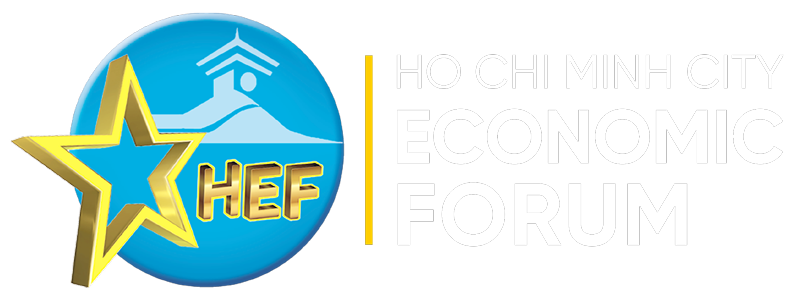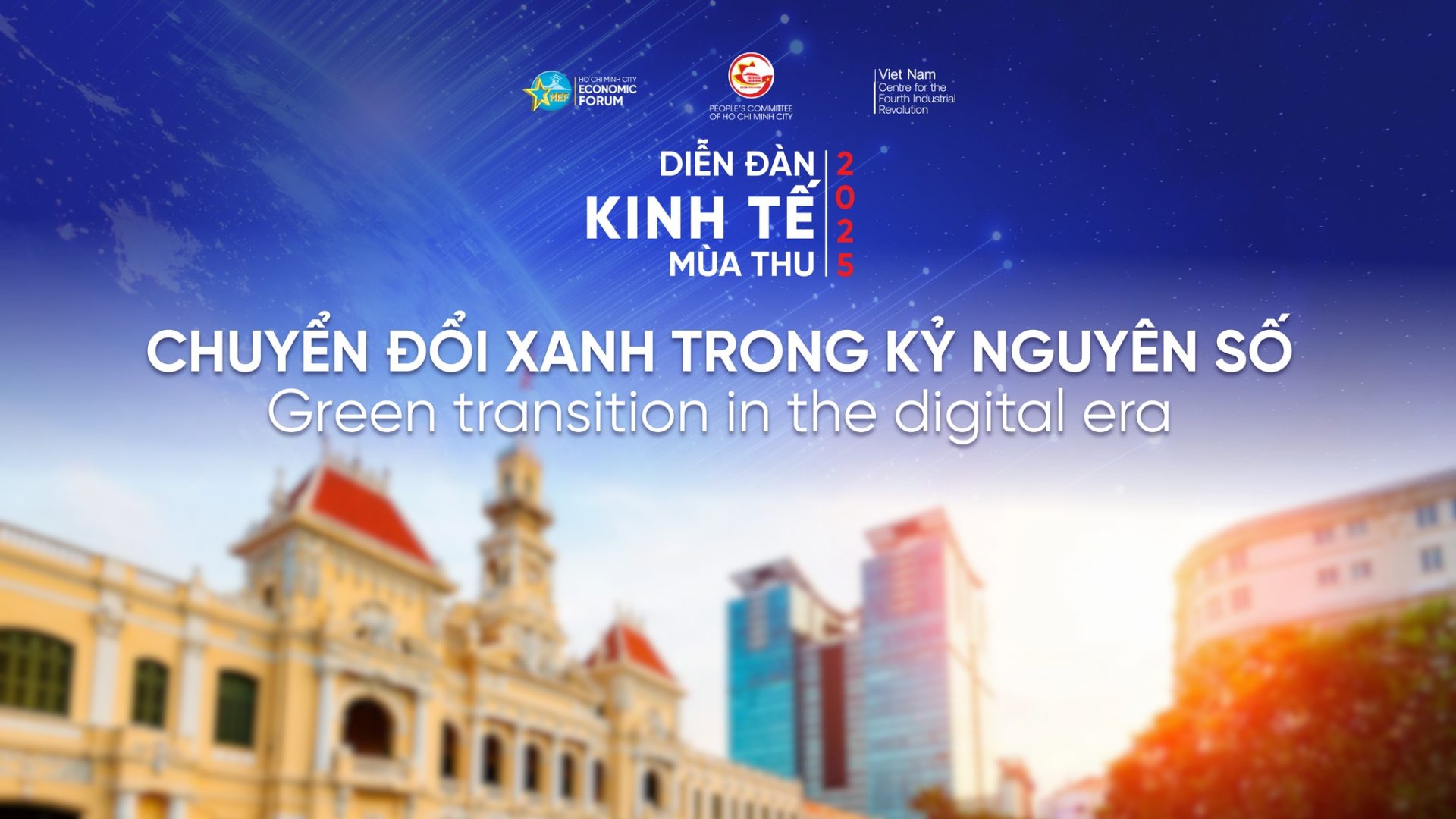The global economy is shifting toward a sustainable growth model driven by technology, with dual transition—digital and green—as the prevailing trend. Vietnam, particularly Ho Chi Minh City, has emerged as a regional model in integrating these two processes. Vietnam is proactively shaping its new position through a dual transition strategy, where digital transition drives green transition, and people remain at the center of all development policies.
Dual Transition – The Driving Force of the Smart Economy
The world is entering a phase of deep fragmentation, where no single nation retains absolute dominance. Geopolitical tensions, regional conflicts, and economic instability have resulted in significant repercussions for energy security, supply chains, and global financial markets.
According to the World Economic Forum 2025 took place in Davos, Switzerland, themed “Cooperation for the Smart Era,” global economic growth for the 2025–2026 period is projected at only 3.3%, below the historical average. This reflects the ongoing long-term cooling trend of the global economy.
In response to growing instability, major economies are restructuring supply chains toward regionalization to reduce dependence on vulnerable links. Many multinational corporations are redirecting investment to emerging hubs that are considered safer and more flexible. However, the gap between strategy and execution remains substantial.
At the same time, technology has become the new axis of power competition.
Artificial intelligence (AI), big data, and digital infrastructure are redefining national capacities. The race for technological and data sovereignty, along with increasing protectionism, is challenging global cooperation mechanisms—the foundation of sustainable development.
Alongside opportunities, technology also presents new environmental challenges. Fluctuating energy prices and the climate crisis compel nations to accelerate investment in renewable energy and advanced storage technologies, seeking a balance between growth and sustainability.
In this context, dual transition—the combination of digital and green transition—has become an inevitable strategic direction and pillar of global development. Instead of two separate processes, it now forms an integrated framework enabling nations to pursue sustainable growth, strengthen resilience, and move toward carbon neutrality by mid-century. Digital transition enhances efficiency, transparency, and resilience, while green transition mitigates environmental risks, promotes the circular economy, and ensures efficient resource use. When implemented in sync, the two processes shape a smart economy – where technology, sustainability, and global governance converge.
However, technology is merely a tool – humans remain the center and ultimate goal of development. The 21st century is an era of knowledge, creativity, and adaptability.
Investing in people through education, science and technology, and digital transition is not only a social policy but also the core driver ensuring the success of the green transition, paving the way toward a sustainable future.
Vietnam Shaping a New Position through the Dual Transition Strategy
To adapt and proactively lead the new global trend, Vietnam identifies science, technology, innovation, and digital transition as strategic foundations, while positioning the green transition as a central pillar. All development policies are guided by a people-centered approach, where the happiness and prosperity of citizens serve as the ultimate measure of success.
The implementation of the National Green Growth Strategy, the Just Energy Transition Program, and the Net Zero 2050 commitment clearly demonstrate Vietnam’s determination to harmonize economic growth with sustainability. Vietnam is not only participating but increasingly taking a leadership role in the region’s green and digital development trends, affirming its position as a proactive and responsible nation within the global economic architecture.
Since late 2024, a series of strategic resolutions issued by the Politburo have covered key areas such as science and technology, international integration, legal reform, and private sector development. These resolutions provide a solid foundation for Vietnam to accelerate digitalization, greening, and smart modernization of its economy.
In the context of the Fourth Industrial Revolution, Vietnam is leveraging technologies such as AI, big data, and automation to enhance its competitiveness, while simultaneously investing in digital infrastructure and governance capacity. When digital and green transitions are implemented in harmony, they lay the foundation for a smart economy, where innovation and sustainable development advance hand in hand.
Ho Chi Minh City, the country’s largest economic and innovation hub, plays a pioneering role in Vietnam’s dual transition strategy and will serve as the locomotive for green – digital development.
Following the provincial-level administrative integration, Ho Chi Minh City has evolved into a regional mega-metropolis, connecting Binh Duong (an intelligent industrial center) and Ba Ria – Vung Tau (a maritime logistics hub). This model optimizes regional governance, establishes a smart metropolitan administration, and enhances attractiveness to high-tech and environmentally friendly investment flows.
The city’s 2025-2030 development strategy focuses on three major breakthroughs: improving institutions and special mechanisms to create a flexible legal framework; developing modern, synchronized infrastructure that meets mega-urban standards; and training and attracting high-quality human resources capable of mastering emerging technologies.
With this direction, Ho Chi Minh City is not only a site of implementation but also a policy and technology laboratory for Vietnam’s dual transition strategy. The city is steadily affirming its status as an international mega-city, helping to position Vietnam at the forefront of the smart, green, and sustainable era.
This affirms Vietnam’s goal of laying a solid foundation for sustainable development—nationally, regionally, and globally – through a coherent strategy and concrete actions in the dual transition process. From November 25 to 30, 2025, the Autumn Economic Forum will take place in Ho Chi Minh City, under the official theme “Green Transition in the Digital Era.”
The Autumn Economic Forum 2025, held under the direct guidance of the Prime Minister of Vietnam, marks a major milestone with the theme “Green Transition in the Digital Era.” The Forum represents a high-level collaboration between the Government of Vietnam, the Ho Chi Minh City People’s Committee, and the World Economic Forum (WEF). It brings together government leaders, ministries, local and international authorities, experts, enterprises, scholars, and international organizations to shape global policy agendas for the future.




